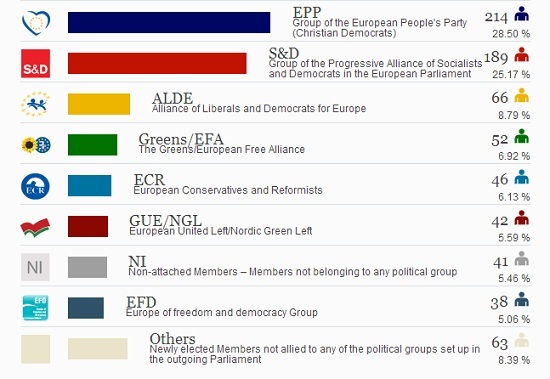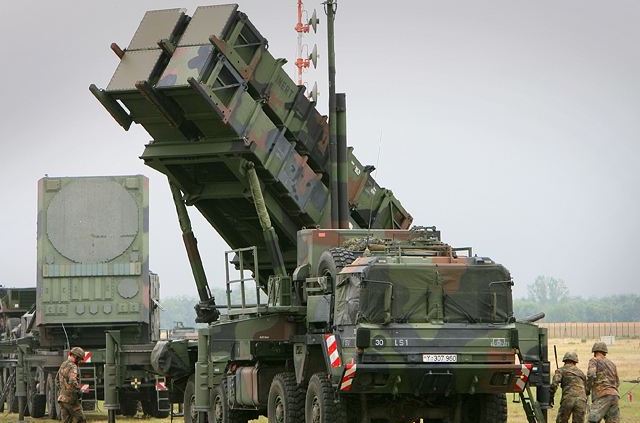EU elections 2014: EPP wins elections, Socialists, shortly behind, according to provisional results

The four days of elections across the 28 Member States of the European Union have ended with the Group of the European People’s Party (Christian Democrats) scoring the victory and taking about 28.23 percent of the vote, followed shortly behind by the Group of the Progressive Alliance of Socialists and Democrats in the European Parliament, as per the provisional results. Hence, the two major groups within the European Parliament account for 399 of the 751 Members of the European Parliament (MEPs) seats (EPP, 212 and S&D, 187 seats).
The Alliance of Liberals and Democrats for Europe obtained an overall result of 9.45 percent which secures about 70 seats for the Liberals, while the Greens/European Free Alliance took 7.32 percent translated into 55 seats within the European Parliament. The list consisting of the other political groups to be represented in the Parliament is completed by the European Conservatives and Reformists (5.99 percent and 45 seats), European United Left/Nordic Green Left (5.73 percent, 43 seats), Europe of Freedom and Democracy Group (4.66 percent and 35 seats). Every political group is made up of 25 MEPs from at least seven Member States.
Additionally, the new structure of the Parliament will include 39 non-attached Members, who do not belong to any political group and that account for 5.19 percent of the vote, hence the remaining 63 seats will be taken by newly elected Members, not allied to any of the groups established in the outgoing Parliament who obtained 8.39 percent.
Average turnout throughout the European Union was the same as the previous elections in 2009 - some 43 percent which remains the lowest ever recorded in the Parliament elections. The highest turnout has been registered in Belgium and Luxembourg – about 90 percent, while the lowest turnout appeared in Slovakia – 13 percent, overall, electors in the Central Eastern European countries have showed little interest in the European elections, most of the Member States in the region recording turnout below the average.
The new 751 MEPs will take up their seats in July, 2014, their mandates being valid for a five-year period. Hence, they will be delegated to implement the EU’s policies for the 2014-2019 interval and to appoint the President of the European Commission.






